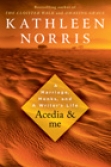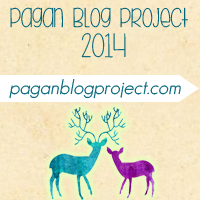I am a mystic. I’m pagan, I’m a polytheist, I’m a devotee to Poseidon, to Odin. I’m an author. I’m many things, but at the heart of it all, I’m a mystic. Due to the influence of the monotheistic religions within the west for the past few thousand years, a huge amount of the language we have available to us comes to us via those traditions. It is unfortunate that many of our traditions have not been continuous (or so we are supposed to believe. Maybe it’s not such a bad thing. Maybe having to create or recreate as we go is better than having a continuous tradition that has threatened to become dogmatic and stagnant. How can we say definitively one way or the other?) and that we have to seek outside of our traditions to find the language that might help us better understand what we go through. In the beginning of my practice, when I came to understand that yes, my life would be about where my gods lead me, that I would be walking a mystic’s path, I did not look to the pagan sources that were available to us – I was still staunchly ignoring much of the historical and cultural influences that shaped Poseidon’s ancient worship, that shaped His cultic and mythic histories. I looked instead to the rich history of mysticism within Christianity, specifically toward the female mystics. I looked to those who burned with love for their god, not so much toward those who burned with zeal for their god.
It wasn’t until Kathleen Norris’s book Acedia & Me: A Marriage, Monks, and A Writer’s Life was published that I discovered there was a term that described what many solitary or solitary-ish people experienced. Just before my life was up-ended by my gods and my choices, just when I was trying to figure out how to cope with having two gods vying for my time and attention, I discovered Norris’s book The Cloister Walk, so I was familiar with her writing. When I caught wind of Acedia & Me I could not snag it quickly enough. Here! Here was a phrase that resonated within, here was a thing I had experienced. Here was a thing which, even years into my practice, from time to time it raises its ugly head. And they had a name for it! Naming things give them power, true, but naming things also gives us power. If I can name this thing, if I can define it, I can seek out its nature, and I have the ability to root it out of my life or keep it, or any number of things in between those two ends.
So, what is acedia? Within Christianity, acedia is placed among the Deadly Sins, or the Seven Temptations. The modern list is somewhat different from the original Greek, and seems to includes ‘sloth’ in place of acedia. In my mind, ‘sloth’ brings connotations of physical laziness and, more importantly, willful laziness; acedia has a richer, more complex meaning, and considering the Cardinal Sins should be read as something to guard against within one’s self rather than a list of faults to seek out among others, to finger point, I prefer the term acedia. (Perhaps it is simply more poetic?) (Perhaps simply because it was Greek?)
To offer a definition that is stripped of the Christian references, I turn to Wiki. “Acedia (also accidie or accedie, from Latin acedĭa, and this from Greek ἀκηδία, negligence) describes a state of listlessness or torpor, of not caring or not being concerned with one’s position or condition in the world. It can lead to a state of being unable to perform one’s duties in life. Its spiritual overtones make it related to but arguably distinct fromdepression.[1] Acedia was originally noted as a problem among monks and other ascetics who maintained a solitary life.”
My understanding and experience with acedia is: it is that voice that whispers there is no point to what you are doing. There is the conviction that these things do no matter. It seems a common enough occurance for anyone who might be trying to divorce their lives from the rampant materialistic cultures we find ourselves in, the quest to find meaning outside of what secular society tells us the meaning should be. The experience of acedia is one of many examples of potential common grounds that I see theists of any stripe sharing. It is the weight that ties around your shoulders and keeps you in bed when you might instead get up and pray or meditate. It is the glue that holds your tongue when you might otherwise recite prayers or sing of your gods. It is the heaviness that keeps you from your circle, that allows dust to gather upon the shrines in your home. It is not quite apathy, not quite depression, not quite inertia, and yet all of these things can be a part of it. It is, in my experience, a type of depression, and coming to understand this, coming to name this particular layer of depression gave me more tools to cope with and integrate my depression as a whole. It allowed me to see more clearly what contributing thoughts and feelings were rooted in my depression, in my baseline blue as I call it, and which were disguised as being rooted there but actually had a different source.
It is impossible to talk about acedia without considering the Christian context, and really, I don’t know that we should try to do so. Every religion has flaws, but traditions that have been around for so long are filled with rich history of people trying to make sense of their experiences with the divine, and I do not believe they should be discarded simply because they belong to this tradition or that tradition. Context can add so much to our understanding of the world around us, and of our histories. At the same time, I do not think that the concept of acedia need remain solely in the domain of Christianity – it is an incredibly useful word, and an incredibly useful concept to apply to our own traditions, especially when so many pagans are practicing as solitaries.




Thank you for this. It’s an incredibly useful term and captures something I often struggle with. I’ve always railed against calling it depression, because as you say, it’s related but *not* the same. I see this is a book I’m going to need to add to the ever-growing must-read pile.
You’re welcome! I find there are a ton of useful concepts and phrases within Catholicism (and likely within any tradition that has a, erm, tradition of monasticism). The article I linked one of the “acedia”s to in the post was also very informative. I do recommend Kathleen’s book, though I will warn that it gets a *tad* repetitive. Not bad, necessarily, simply repetitive.
Wow, that does sound familiar, doesn’t it? Thanks for giving it a name. 🙂
Yep, this sounds familiar. It’s a type of depression for me too, mostly. It’s very meh.